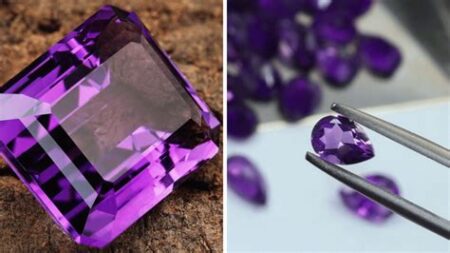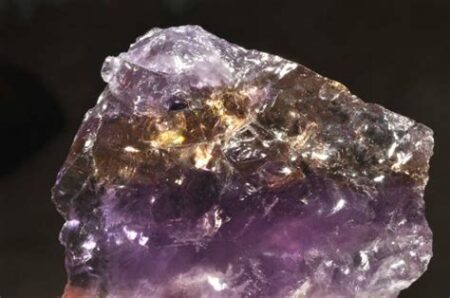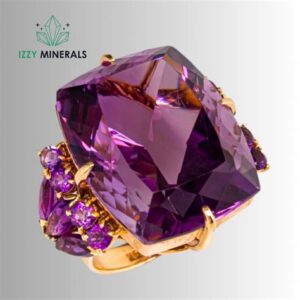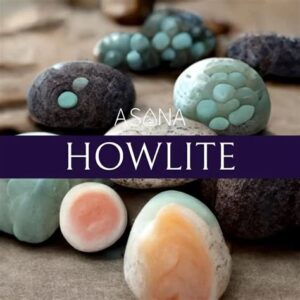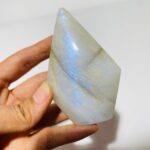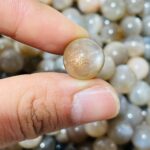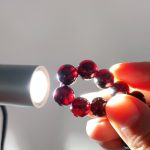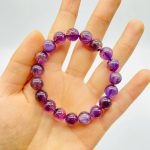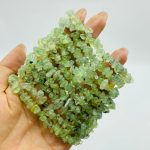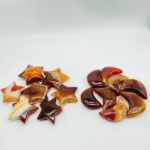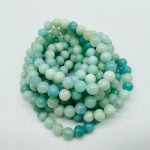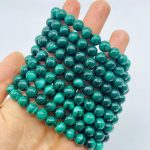Black rutile, a rare and fascinating mineral, captivates with its exceptional properties and alluring aesthetics. Its unique crystalline structure, exceptional durability, and immense potential for diverse applications make it a gem waiting to be fully explored.

Unveiling the Wonders of Black Rutile
Black rutile is an oxide mineral primarily composed of titanium dioxide (TiO₂) and a trace amount of iron oxide (FeO). Its distinctive black color is attributed to the presence of iron ions, which absorb light across the visible spectrum. This mineral exhibits a tetragonal crystal structure, characterized by four-sided prisms terminated by pyramids.
Exceptional Durability and Strength
Black rutile possesses remarkable durability and strength, making it an ideal material for a wide range of applications. Its Vickers hardness, a measure of resistance to mechanical deformation, ranges between 6.5 and 7.5, comparable to that of quartz. This exceptional durability ensures its suitability for applications requiring resistance to wear, abrasion, and impact.
Versatile Electrical and Thermal Properties
Black rutile exhibits intriguing electrical and thermal properties, opening up possibilities for various technological applications. It is a semiconductor with a wide band gap of approximately 3.0 eV. This property makes it a promising candidate for optoelectronic devices, such as light-emitting diodes (LEDs) and solar cells. Additionally, black rutile has a high thermal conductivity, enabling efficient heat dissipation in electronic components.
Untapped Potential in Diverse Applications
Black rutile holds tremendous potential for groundbreaking applications across various industries. Its unique combination of properties sparks innovation in fields such as:
Industrial and Automotive Coatings
The exceptional durability of black rutile makes it a valuable additive for industrial and automotive coatings. It enhances the coatings’ resistance to scratches, abrasion, and corrosion, extending the lifespan of equipment and vehicles.
Electronics and Optoelectronics
Black rutile’s electrical and optical properties make it a promising material for electronic and optoelectronic applications. Its use in LEDs and solar cells could revolutionize energy-efficient lighting and renewable energy technologies.
Defense and Security
Black rutile’s durability and strength make it an attractive material for defense and security applications. Its incorporation into armor and protective gear could enhance protection against ballistic impacts and shrapnel.
Jewelry and Luxury Goods
The striking black color and inherent beauty of black rutile have captured the attention of jewelers and luxury goods manufacturers. It is used in high-end jewelry, watches, and accessories, adding a touch of sophistication and exclusivity.
Tips and Tricks: Harnessing Black Rutile’s Power
To effectively utilize black rutile in various applications, consider the following tips and tricks:
- Particle Size Optimization: The particle size of black rutile significantly influences its properties. Smaller particles enhance surface area and reactivity, while larger particles provide increased strength. Tailoring the particle size to specific applications is crucial.
- Surface Modification: Modifying the surface of black rutile can enhance its compatibility with other materials and improve its performance. Techniques such as chemical vapor deposition (CVD) and atomic layer deposition (ALD) enable precise surface modifications.
- Alloying and Doping: Incorporating other elements into black rutile through alloying or doping can alter its electrical, optical, and thermal properties. This allows for customized material design for specific applications.
FAQs: Unraveling the Mysteries of Black Rutile
1. How is black rutile formed?
Black rutile is primarily formed through metamorphic processes, where intense heat and pressure transform titanium-bearing minerals.
2. Is black rutile radioactive?
No, black rutile is not radioactive. It contains only trace amounts of naturally occurring radioactive elements, which are well below harmful levels.
3. What is the price of black rutile?
The price of black rutile varies depending on its quality, particle size, and demand. Generally, high-quality, fine-grained black rutile can fetch premium prices.
4. Where can I find black rutile?
Black rutile deposits are primarily found in Australia, Sri Lanka, and Madagascar. However, smaller deposits can be found worldwide.
5. What are the environmental concerns associated with black rutile mining?
Mining black rutile can pose environmental challenges, including habitat destruction and water pollution. Responsible mining practices are essential to minimize these impacts.
6. What are the emerging applications of black rutile?
Black rutile is being explored for applications in transparent armor, energy storage, and biomedical implants. Its unique properties offer potential for breakthroughs in these fields.
Tables: Quantitative Insights into Black Rutile
Table 1: Physical Properties of Black Rutile
| Property | Value |
|---|---|
| Crystal Structure | Tetragonal |
| Vickers Hardness | 6.5-7.5 |
| Density | 4.23-4.29 g/cm³ |
| Band Gap | 3.0 eV |
| Electrical Conductivity | 10^-6-10^-4 S/cm |
Table 2: Major Applications of Black Rutile
| Application | Function | Benefits |
|---|---|---|
| Industrial Coatings | Anti-scratch, anti-abrasion, anti-corrosion | Enhanced equipment lifespan, reduced maintenance costs |
| Electronics | LEDs, solar cells | Improved energy efficiency, reduced environmental impact |
| Automotive | Bulletproof glass | Increased passenger safety, reduced weight |
| Jewelry and Luxury Goods | High-end jewelry, watches, accessories | Unique aesthetics, added value, exclusivity |
Table 3: Key Suppliers of Black Rutile
| Supplier | Location | Market Share |
|---|---|---|
| Iluka Resources | Australia | 30% |
| Kenmare Resources | Mozambique | 25% |
| Tronox | USA | 20% |
| Rutile Mining Company | Australia | 15% |
| Other | Worldwide | 10% |
Table 4: Emerging Applications and Market Potential of Black Rutile
| Application | Market Potential |
|---|---|
| Transparent Armor | $5 billion by 2025 |
| Energy Storage | $20 billion by 2030 |
| Biomedical Implants | $10 billion by 2035 |

